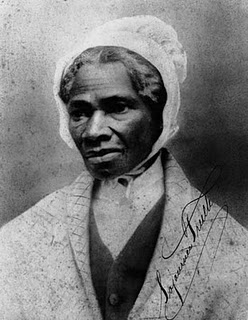Do Old Ladies Make World History?
Who influences history and how do we weigh that influence? Do we have biases about who qualifies as a “history maker”? When we read about historic events, for example, do we acknowledge the ages of the participants? Do some people count more than others?
These questions bothered Stephen Woodburn while he was teaching his modern world history classes at Southwestern College in Winfield, Kansas. Near the end of one semester, Woodburn suspected that his undergrads did have biases, particularly when it came to older women. So he set out to explore his theory. He described his findings in an essay called “Do Old Ladies Make World History?: Student Perceptions of Elder Female Agency.”
Woodburn started by posing the question outright, “Do old ladies make world history?” Some students were certain that older women did not make history; some were not sure. A few could name marquee movers and shakers, like Queen Victoria, Mother Teresa, Clara Barton and Sojourner Truth.

|
Sojourner Truth |
But the question revealed that age was a stumbling block. Students couldn’t define “old ladies” except by visual cues like wrinkles and gray hair. Some students confused the concept of “old” with the concept of someone who lived a long time ago. So they named Florence Nightingale and Harriet Tubman as well, both of whom lived to be 90 but are known for what they accomplished before the age of 50.
The conclusion was therefore clear: older women do not influence world events. In the entire history of the planet, only four women had made an impact in their later years.
Undaunted, Woodburn proceeded with his experiment. He had assigned readings for the class, including an eyewitness account of the 1989 mass protests at Tiananmen Square and articles from the Washington Post and Moscow Times about the 1991 mass demonstrations against the attempted coup by Soviet hardliners in Moscow.
In the case of Tiananmen Square, Woodburn asked his students what the million protestors—all ordinary Chinese citizens—were like. The students recalled young people like themselves participating.
And yet, going back to the eyewitness account assigned, the students would have read the following descriptions of the protesters:
• Elderly women lay down in front of tanks.
• I approached a middle-aged Chinese woman . . .
• Look at all the people who have come out to protect the students.
• An old woman in an apron came out to collect some empty bowls.
Age-related details were revealed, but such details were not retained.
Woodburn then turned to the newspaper accounts of the mass protests in Moscow. Again, references to women’s involvement were plentiful, and to their age, often explicit. There were references to mothers and “older women,” specific quotes from a “gray-haired” woman and another from a retired schoolteacher who was 61. As with Tiananmen Square, ordinary citizens played an extraordinary role in the course of world events.
But Woodburn’s students did not register the existence of these older female participants, and so they did not recognize the heroism of blocking tanks, either.
And that’s a missed opportunity, in Woodburn’s view. Because Woodburn sees a dramatic, peace-making pause in these historic face-offs. He sees the subversive power of older women—exactly because of their age—to make disciplined soldiers hesitate.
So yes, old ladies do make world history. We just have to be prepared to see them. That means we have to question our assumptions about who and what count. Until we question our assumptions, Woodburn believes, it won’t matter if contrary evidence confronts us; like the unobservant undergrads, we may stick with our preconceived notions about who shapes history and who is an important part of society.
Certainly if we want our own old age to be relevant, we need to think about our biases against it.
Post a Comment
Blogs by Author
Alix Kates Shulman
Ashton Applewhite
Bob Bostock
Flora Davis
Liz Seegert
Maggie Sullivan
Margaret Cruikshank
Margaret Morganroth Gullette
Megan Kearns
Pepper Evans
Pete Croatto
Victoria Robinson
Blogs by Date
2017
- December (2)
- November (3)
- October (2)
- September (2)
- August (5)
- July (3)
- June (6)
- May (5)
- April (5)
- March (6)
- February (4)
- January (3)
2016
- December (4)
- November (3)
- October (5)
- September (5)
- August (5)
- July (5)
- June (5)
- May (5)
- April (4)
- March (6)
- February (6)
- January (2)
2015
- December (3)
- November (7)
- October (6)
- September (5)
- August (4)
- July (6)
- June (7)
- May (5)
- April (6)
- March (6)
- February (3)
- January (6)
2014
- December (4)
- November (1)
- October (6)
- September (1)
- August (3)
- July (5)
- June (3)
- May (2)
- April (4)
- March (4)
- February (2)
- January (1)
2013
- October (3)
- September (4)
- May (1)
- February (1)
2012
- December (2)
- September (2)
- January (1)
Our Mission
The Silver Century Foundation promotes a positive view of aging. The Foundation challenges entrenched and harmful stereotypes, encourages dialogue between generations, advocates planning for the second half of life, and raises awareness to educate and inspire everyone to live long, healthy, empowered lives.
![]()
"It is not by muscle, speed, or physical dexterity that great things are achieved, but by reflection, force of character, and judgment; in these qualities old age is usually not poorer, but is even richer."
Cicero (106-43 BC)
